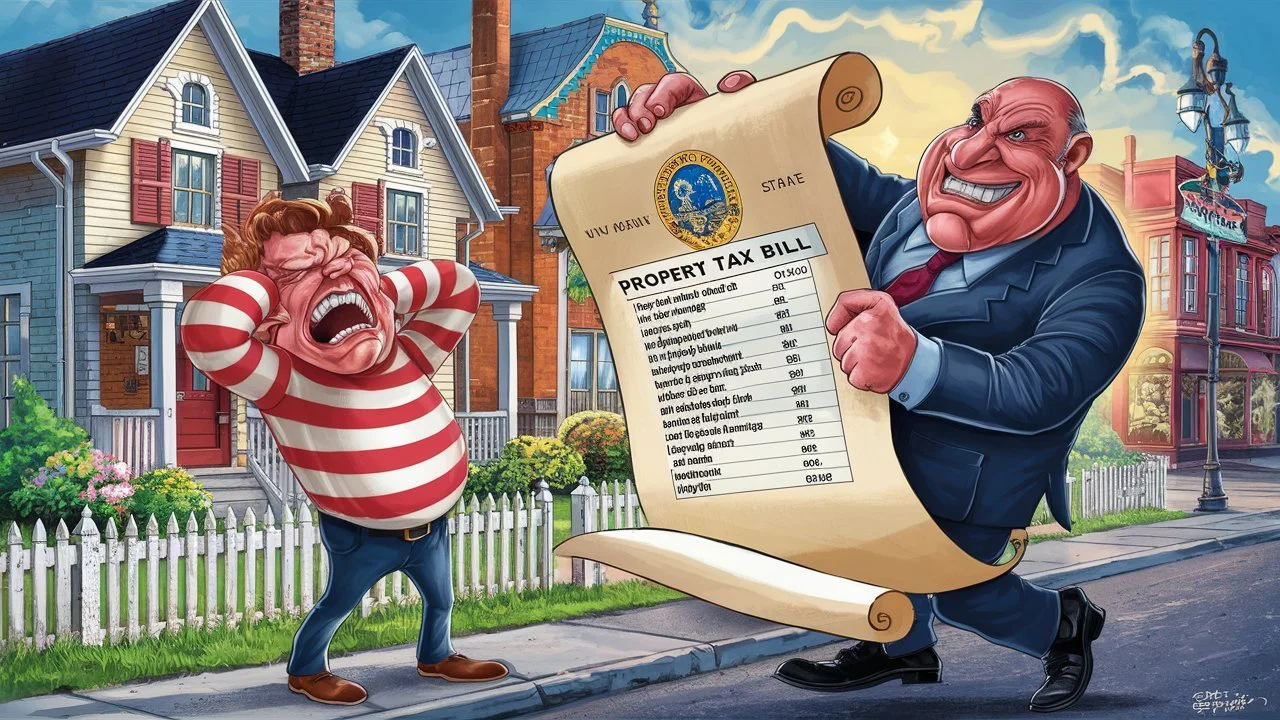Unlock Savings: How New Jersey Seniors Can Slash Property Taxes
If you're moving to Jersey, there's one thing you should know Your paycheck ain't yours, it's for the property taxman, oh no!
New Jersey is renowned for many things, but its high property taxes are a hot topic among residents. New Jersey's property tax rates are some of the highest in the nation, which can pose a significant burden, especially for seniors on fixed incomes. Understanding how these taxes are determined and exploring ways to reduce them can provide substantial financial relief.
How New Jersey Property Taxes Are Determined
New Jersey's property taxes are calculated based on the assessed value of a property and the tax rate set by the local government. Here’s a breakdown of the process:
1. Assessment of Property Value: Each municipality employs a tax assessor who determines the market value of properties within their jurisdiction. This assessment is supposed to reflect the fair market value of the property as of October 1 of the previous year.
2. Equalization: Because assessment practices can vary widely among municipalities, New Jersey uses an equalization process to ensure fairness. This process adjusts assessments to reflect a consistent proportion of market value across all municipalities.
3. Tax Rate Determination: Local governments, including counties, municipalities, and school districts, determine their budgets and the amount of revenue needed from property taxes. The tax rate is then set by dividing the total tax levy by the total assessed value of all properties in the area.
4. Property Tax Calculation: The property tax bill is calculated by multiplying the assessed value of the property by the tax rate. For example, if a property is assessed at $300,000 and the tax rate is 2%, the annual property tax would be $6,000.
Counties with Highest Property Taxes in New Jersey
Factors Affecting Property Taxes
Several factors can influence property taxes in New Jersey:
Local Budget Needs: Higher local government, school district, or county budget needs can increase the tax rate.
Property Improvements: Renovations or additions to a property can increase its assessed value.
Market Conditions: Changes in the real estate market can affect property values and, consequently, property taxes.
Tax Appeals: Successful appeals by property owners can lead to reduced assessments and lower taxes for individuals.
Strategies to Lower Property Taxes
For many residents, especially seniors, finding ways to reduce property taxes can make a significant difference. Here are several strategies to consider:
1. Property Tax Appeals: If you believe your property has been over-assessed, you can file an appeal with your county tax board. Successful appeals can reduce the assessed value and lower your taxes. To appeal, gather evidence such as recent sale prices of similar properties in your area and demonstrate why your property’s assessed value is too high.
2. Seniors’ Property Tax Relief Programs:
Senior Freeze (Property Tax Reimbursement Program): This program reimburses eligible senior citizens and disabled persons for property tax increases. To qualify, you must meet income limits and have been a New Jersey resident for at least 10 consecutive years.
Homestead Benefit Program: Offers property tax relief to eligible homeowners. Seniors may receive a credit directly applied to their property tax bill.
Property Tax Deduction for Senior Citizens: Seniors aged 65 or older can receive an annual property tax deduction of up to $250, provided they meet income and residency requirements.
StayNJ Program: The state created the StayNJ program, which provides a tax credit to homeowners age 65 and older with an annual income of $500,000 or less. The credit is equal to half of the homeowner's property tax bill, up to a maximum of $6,500.
Anchor Tax Rebate: Replacing the Homestead Benefit, the ANCHOR program opens up eligibility to a broad range of seniors in New Jersey. More than 870,000 homeowners with incomes up to $150,000 will qualify for a rebate of $1,500, while over 290,000 homeowners with incomes between $150,000 and $250,000 will be eligible for a $1,000 rebate. Additionally, more than 900,000 renters with incomes up to $150,000 will be eligible to receive $450 to help offset rent increases.
3. Review Exemptions and Deductions:
- Veterans’ Exemptions: Qualified veterans may be eligible for a $250 property tax deduction.
- Disabled Persons’ Deduction: Individuals who are permanently and totally disabled may qualify for property tax deductions.
4. Energy-Efficient Improvements: New Jersey offers various incentives for making energy-efficient upgrades to your home. These improvements can sometimes qualify you for additional tax breaks or lower your utility costs, indirectly easing your financial burden.
5. Downsize or Relocate: For some seniors, downsizing to a smaller home or relocating to a municipality with lower property tax rates may be a viable option. This can significantly reduce your property tax bill and overall living expenses. You can save further by moving to a state without income taxes.
6. Stay Informed and Engaged: Attend local government meetings to stay informed about budget decisions that impact property taxes. Engaging with local officials and participating in community discussions can also provide insight into upcoming changes and opportunities for tax relief.
Navigating New Jersey's property tax system can be challenging, but understanding how taxes are determined and exploring available relief programs can help seniors manage their financial responsibilities more effectively. Whether through appealing assessments, taking advantage of tax relief programs, or considering a strategic move, seniors have several options to lower their property taxes and alleviate some of the financial burdens associated with homeownership in the Garden State. Staying informed and proactive is key to making the most of these opportunities.
